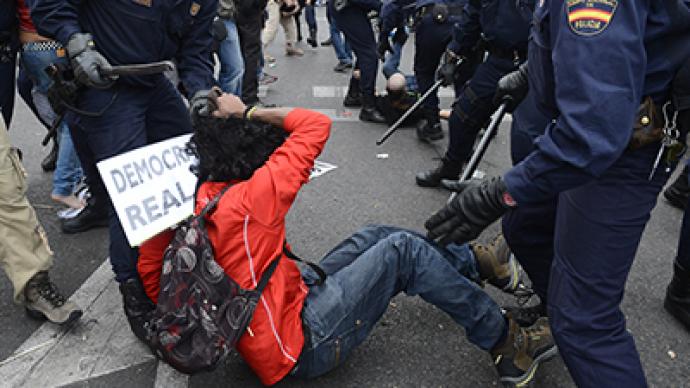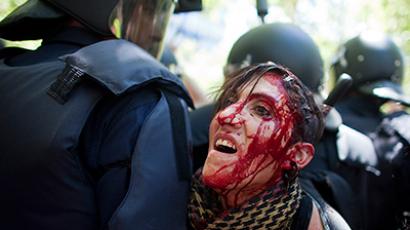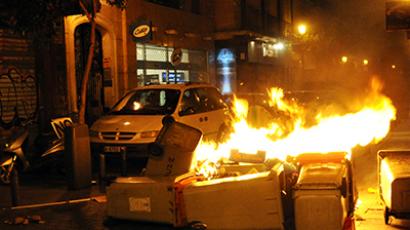Police protection or citizen censorship? Spain to ban photos and videos of cops

Spain’s government is drafting a law that bans the photographing and filming of members of the police. The Interior Ministry assures they are not cracking down on freedom of expression, but protecting the lives of law enforcement officers.
The draft legislation follows waves of protests throughout the country against uncompromising austerity cuts to public healthcare and education.The new Citizen Safety Law will prohibit “the capture, reproduction and editing of images, sounds or information of members of the security or armed forces in the line of duty,” said the director general of the police, Ignacio Cosido. He added that this new bill seeks to “find a balance between the protection of citizens’ rights and those of security forces.”The dissemination of images and videos over social networks like Facebook will also be punishable under the legislation.Despite the fact that the new law will cover all images that could pose a risk to the physical safety officers or impede them from executing their duty, the Interior Ministry maintains it will not encroach on freedom of expression.“We are trying to avoid images of police being uploaded onto social networks with threats to them and their families,” underlined Cosido.Violation of freedom of expression?Spain’s United Police Syndicate said it considers the implementation of the new legislation “very complicated” because it does not establish any guidelines over what kinds of images violate the rights of a police officer. The syndicate warned that the ministry will run into “legal problems” if it does not specify the ins and outs of the law."We do not intend to stop the press from doing its job of taking pictures of police charges and other proceedings. But we understand that in anti-terrorist operations or against mafias you have to have a more careful approach when it comes to disseminating images," Interior Minister Jorge Fernandez Diaz said commenting on the issue.The director of the police also argued that the measures were necessary given the “elevated levels of violence against officers” in the economic downturn that is “undermining the basis of a democratic society.”The anti-austerity protests that have swept Spain over the past year have been punctuated by reports and footage of police brutality. The footage showed that large numbers of Spanish officers did not wear their identification badges during the protests, although the law requires it.Spanish journalists now worry that the government's proposed measure could have a negative impact on news gathering."If this proposal goes ahead, it is going to be impossible to know about events as they occur on the streets just at a time when streets are at boiling point due to the dire economic situation of many families," Angel Casana, a lead writer for the national newspaper El Mundo, said in an online editorial. The Spanish government made sweeping cuts to the public sector, provoking the ire of a Spanish public already disillusioned at rising unemployment that tops 50 per cent among adolescents. Madrid has not yet called on the European Central bank for a bailout. But rising economic woes and an unchecked public deficit may force it to do so in the near future as Spain’s beleaguered economy is in danger of following in the footsteps of Greece.














